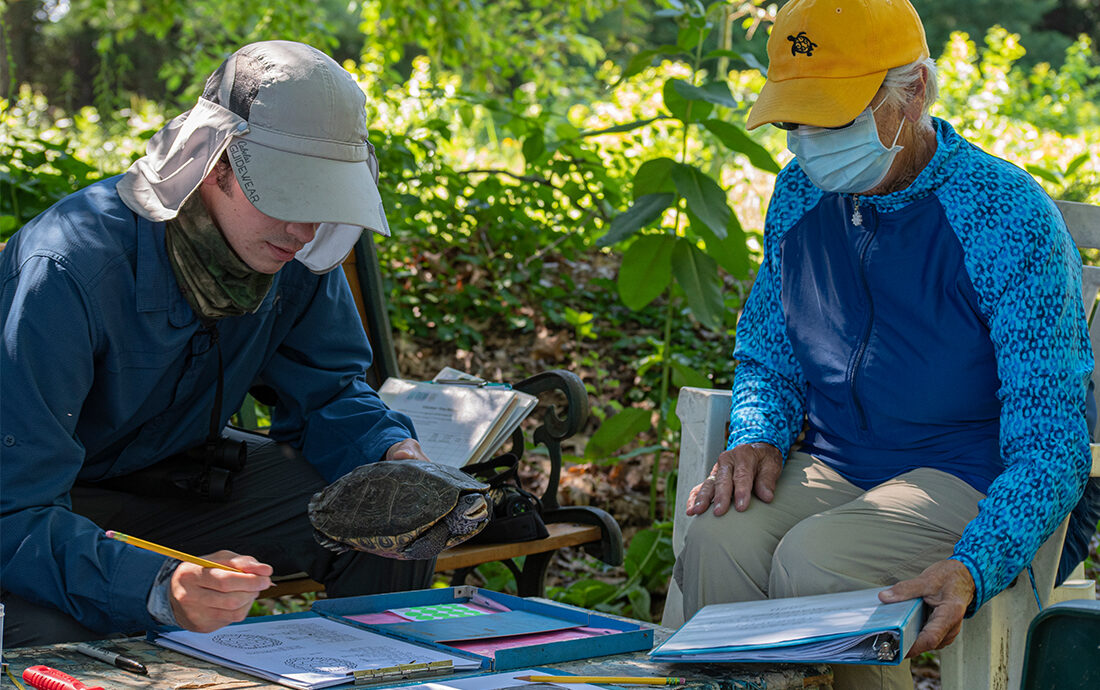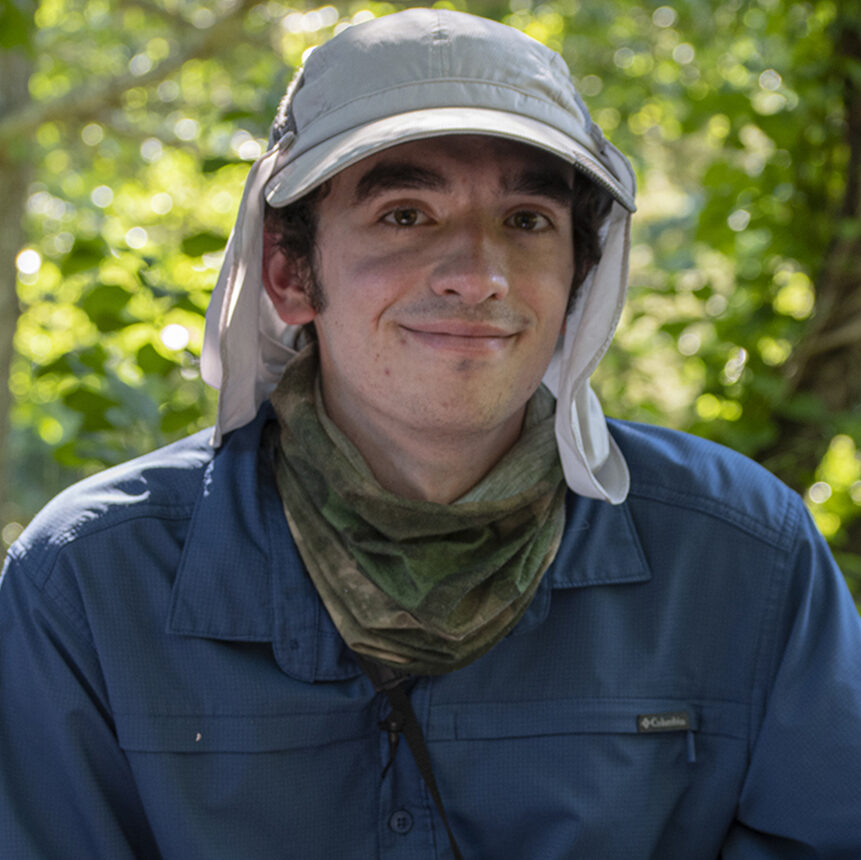Field research focuses on a rare turtle
The Coastal Fellows Program enabled Richard Mercer ’22 to spend the summer gaining hands-on experience.


Studying and protecting the environment
Diamondback terrapins are an endangered species in Rhode Island; so, Richard Mercer ’22, a student in the Coastal Fellows Program, teamed up with graduate student Carolyn Decker to find more about the nesting process of this quiet creature.
They spent the early part of the summer watching the adult turtles lay their eggs, implanting an electronic tag, assessing their health, and collecting other data as part of an effort to protect the Ocean State’s rarest turtle. They also installed wire nest guards to deter predators and trail cameras to watch what was happening after dark. The two students chronicled the hatching success of each nest and tracked the movements of the hatchlings.
Mercer’s research was supported by the URI Coastal Fellows Program, a unique initiative that pairs undergraduates with a mentor and research staff to address environmental problems. Now in its 24th year, the eight-month fellowship runs mid-May through December.
“I applied to the program because I was interested in gaining hands-on research experience and having the opportunity to present a research project at a poster symposium,” said Mercer. “The greatest benefit was gaining experience in herpetology [study of reptiles and amphibians], a field that I am very interested in.”
A double major in biological sciences and marine affairs, Mercer also participated in several other research projects as a Coastal Fellow. On each project, he collaborated with URI graduate students, Associate Professor Nancy Karraker, and Scott Buchanan, state herpetologist from the RI Department of Environmental Management.
“The poster I presented at the end of my fellowship was, ‘Predation of diamondback terrapin nests by nocturnal mammals: implication for the conservation of a Rhode Island endangered species,’ said Mercer. “The results of the study suggested that the diamondback terrapin nests are most threatened by nocturnal mammals during the nesting period, and the primary predators are striped skunks and then raccoons.”
The study may result in the installation of an electric fence that would encompass diamondback terrapin nesting sites and exclude the predators at Doug Rayner Wildlife Refuge.
Mercer’s already considering graduate school and a career as a conservation biologist. “I really just want to gain as much experience as I can with as many different species as possible so I can understand more about the various ecosystems,” he said.
We all benefit from his love of the natural world.